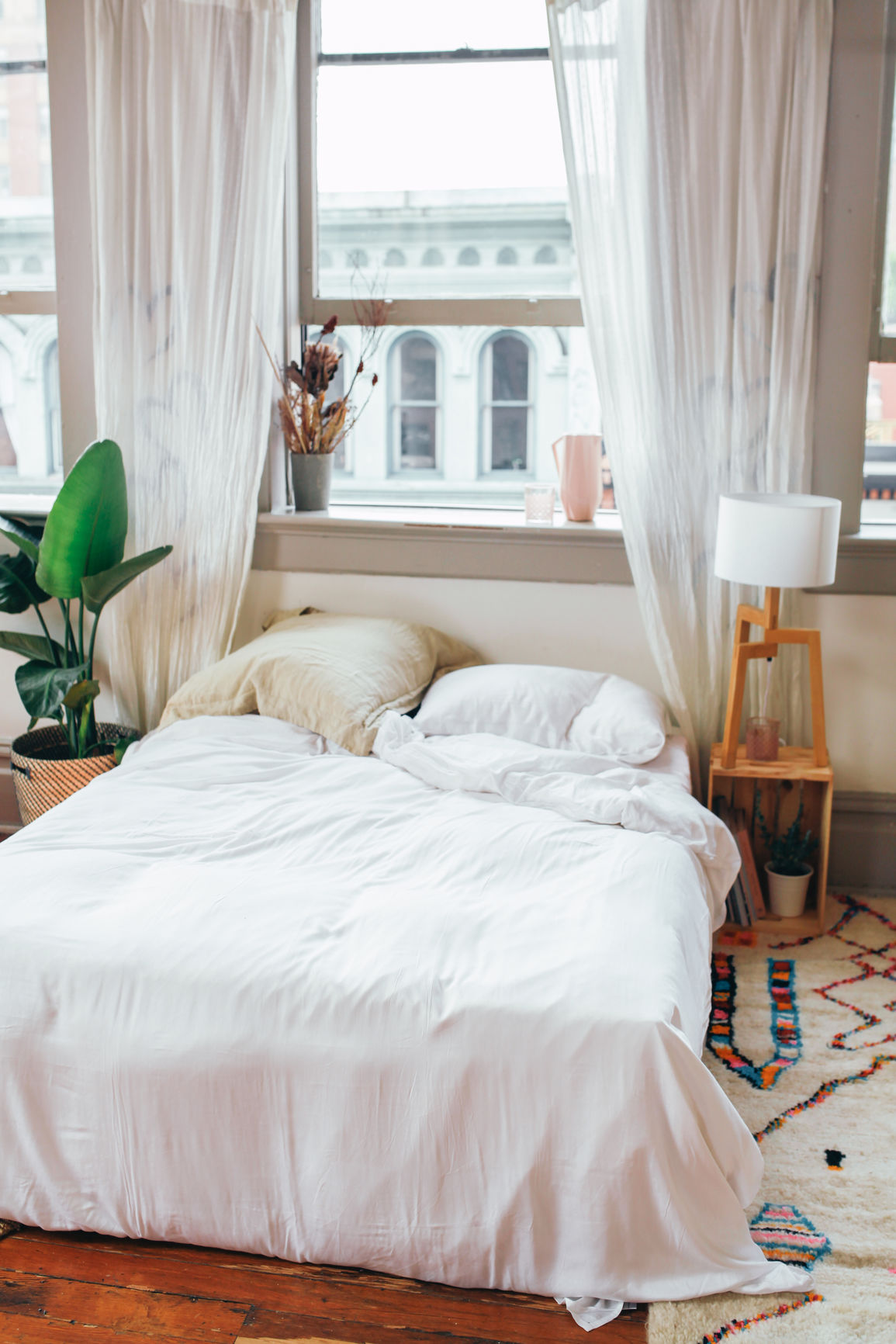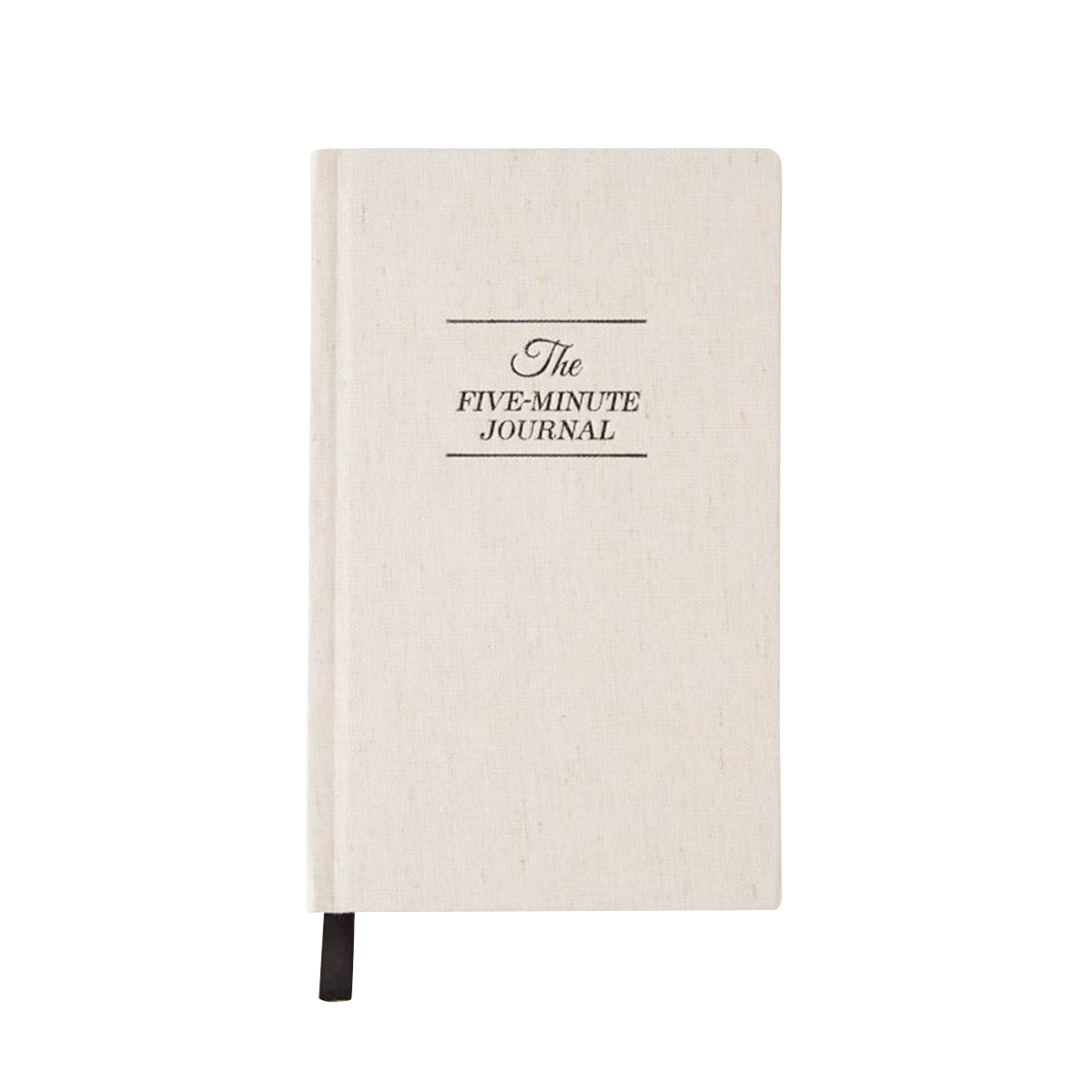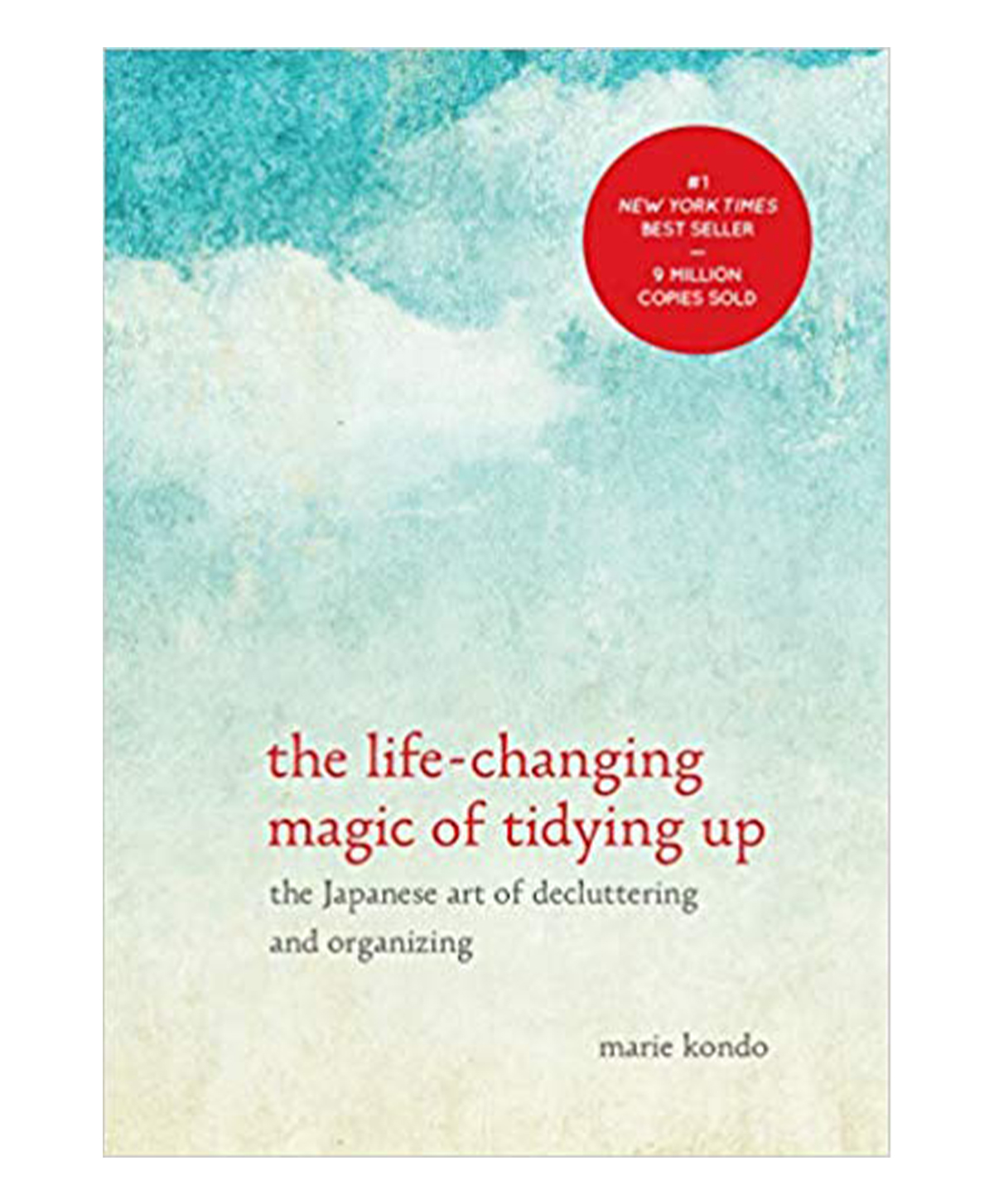Here's How to Stop Feeling So Attached to Your Stuff


Since moving across the country with only two suitcases, I've fancied myself as something of a minimalist—an idealistic thought that was swiftly dismantled when I moved apartments. As I packed up my life for the first time since landing in L.A., I was truly astonished by how much stuff I had managed to accumulate in my tiny studio apartment in a relatively short amount of time. And while I welcomed this opportunity for some aggressive cleaning, I still found myself feeling conflicted as I sorted through my things.
Of course, moving does offer some additional motivation to purge your life that regular spring-cleaning lacks: There's nothing like the prospect of lugging dozens of heavy boxes to a new space to make you reevaluate your hoarding tendencies. But in reality, we could probably all stand to consider the items we choose to surround ourselves with—especially since it's human nature to feel an emotional connection to them.
And therein lies the problem. "Holding deep attachments to physical items closes the door to fully experience the present moment," says Lili Pettit, organization expert and founder of Clutter Healing. "When we are hyper-focused on sentimental items or things in general, we miss out on the human experience." If we don't address it, it gives way to a vicious cycle: We seek fulfillment by surrounding ourselves with things instead of throwing ourselves into experiences, and by default, we can never feel present or satisfied. Then, when the stuff inevitability piles up, we feel even more distraught when we need to get rid of it to make space… for more stuff.
Still, the prospect of decluttering your life once and for all—and shifting your perspective so you no longer accumulate the clutter in the first place—is definitely intimidating. That's why we asked two clutter experts for their pointers on breaking the pattern once and for all.
Remember that everything is impermanent.
"Nothing lives forever," says Pettit. "Nothing. The more comfortable you can get with the idea of losing everything, the more value you place on the simple pleasures in life." This is also why our attachment to possessions can be an obstacle to true mindfulness—it shifts the focus from the experience itself to an object that represents said experience, kind of like looking at a beautiful landscape solely through your iPhone camera.
If you're feeling really sentimental about an object, consider what it truly represents.
"Memorabilia is valuable when it provides a stepping-stone to where we are now," says Tisha Morris, feng shui expert and author. "But when it becomes an anchor that keeps us in the past, then it's lost its value to us. Sometimes looking back at what was can be helpful in moving forward. But dwelling too much in the past can keep us stuck there."
I kept this in mind as I sorted through my own belongings while moving since I have a habit of collecting small souvenirs and relics of my favorite experiences: ticket stubs, Polaroids, pretty rocks I picked up on a hike. I asked myself: 10 years from now, will I really be devastated that I didn't keep this? Save for a few select items (a note from my late grandmother, for example), I ended up tossing the majority of those items.
Instead, as Morris advised, I focused on the things that I knew I'd always find productive: namely my journals, which I re-read from time to time as a reminder of how far I've come.
Look at decluttering as a form of empowerment.
Psychologically speaking, physical clutter tends to have a mirror effect on our brains. Studies show that it makes us more distracted and can even cause cortisol levels to skyrocket. But with all this in mind, remember that by choosing to sort through your things and purge anything that's unnecessary, you're reasserting control over your own life. And don't underestimate the potential ripple effect of doing so.
"As we declutter by deciding what items stay and what items go, we start to prioritize everything in our life," says Morris. "We start to have more power over what we give our energy to and what takes our energy. Instead of feeling like life is taking over you, you begin to take over your life. By only having items you love or use, you are making this a statement in all areas of your life, including work and relationships."
On the flip side, it's okay to feel disconcerted or emotional when you're getting rid of your things.
In fact, it's human nature. Studies show that by simply touching an object, people already feel much more emotionally attached. So even if you rationally know it's best to part with something, it might not be easy to actually let it go.
The trick is to view decluttering as an opportunity for catharsis—to acknowledge and really feel the emotions or memories you've associated with an item, but also know that when you get rid of said item, you still have those emotions and memories. (If you want to take it a step further and play therapist, you'll ask yourself, Why does it feel so hard to let this go?)
Finally, remember to give gratitude for everything you have.
In the end, our attachment to stuff really comes down to a broken relationship with fulfillment. "I think most humans aren't totally in touch with how to fulfill themselves emotionally, so they seek validation and comfort from external sources, including physical objects," says Pettit. "When we focus on things we think we need, we create a lack, or scarcity, mindset, which is very unproductive."
But when we're feeling satisfied and content with everything else that's going for us, we won't need to rely on that external validation. "When we are aware of how much we already have and give gratitude and thanks for that foundation, we will always feel fully abundant," says Pettit. "In essence, focusing on the good stuff multiplies more good stuff." The best part: It's the kind of "stuff" that you won't have to box up and move every few years.
Next up: Pro Tip: Make Home Décor Part of Your Wellness Routine
Disclaimer
This article is provided for informational purposes only and is not intended to be used in the place of advice of your physician or other medical professionals. You should always consult with your doctor or healthcare provider first with any health-related questions.

